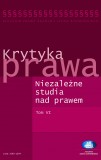Leibniz i początki nowożytnego nacjonalizmu językowego
Leibniz and the Origins of Modern Lingual Nationalism
Author(s): Hanna ŚwięczkowskaSubject(s): Anthropology, Language studies, Philosophy of Language, Nationalism Studies, 17th Century
Published by: Akademia Leona Koźmińskiego
Keywords: Leibniz; lingual nationalism; cognitive equality of languages;
Summary/Abstract: In this work I present Leibniz’s views in the context of the dispute on the origins of language held in the 17th century and inspired if not yet by pure nationalism, then certainly by the argument about the priority of linguistic and cultural tradition. The Leibniz’s stand in the matter is not unequivocal. However, when comparing the philosopher’s marginal ideological statements, views expressed in his key texts concerning the theory of language, as well as the ones connected with the theory of cognition, we are lead to a conclusion that the philosopher has taken a different approach – not only as an ideologist defending Germany’s cultural heritage, but also as a thinker, theoretician and researcher of natural languages, proving the equality of their cognitive functions. The most interesting issue undertaken by the philosopher, is the problem of the status of language and its relation to thinking. In this context the futile argument about the priority of languages is replaced with a philosophical question, which remains significant to this day, about the human ability to create a language and its cognitive rank.
Journal: Krytyka Prawa
- Issue Year: 6/2014
- Issue No: 1
- Page Range: 167-181
- Page Count: 15
- Language: Polish

